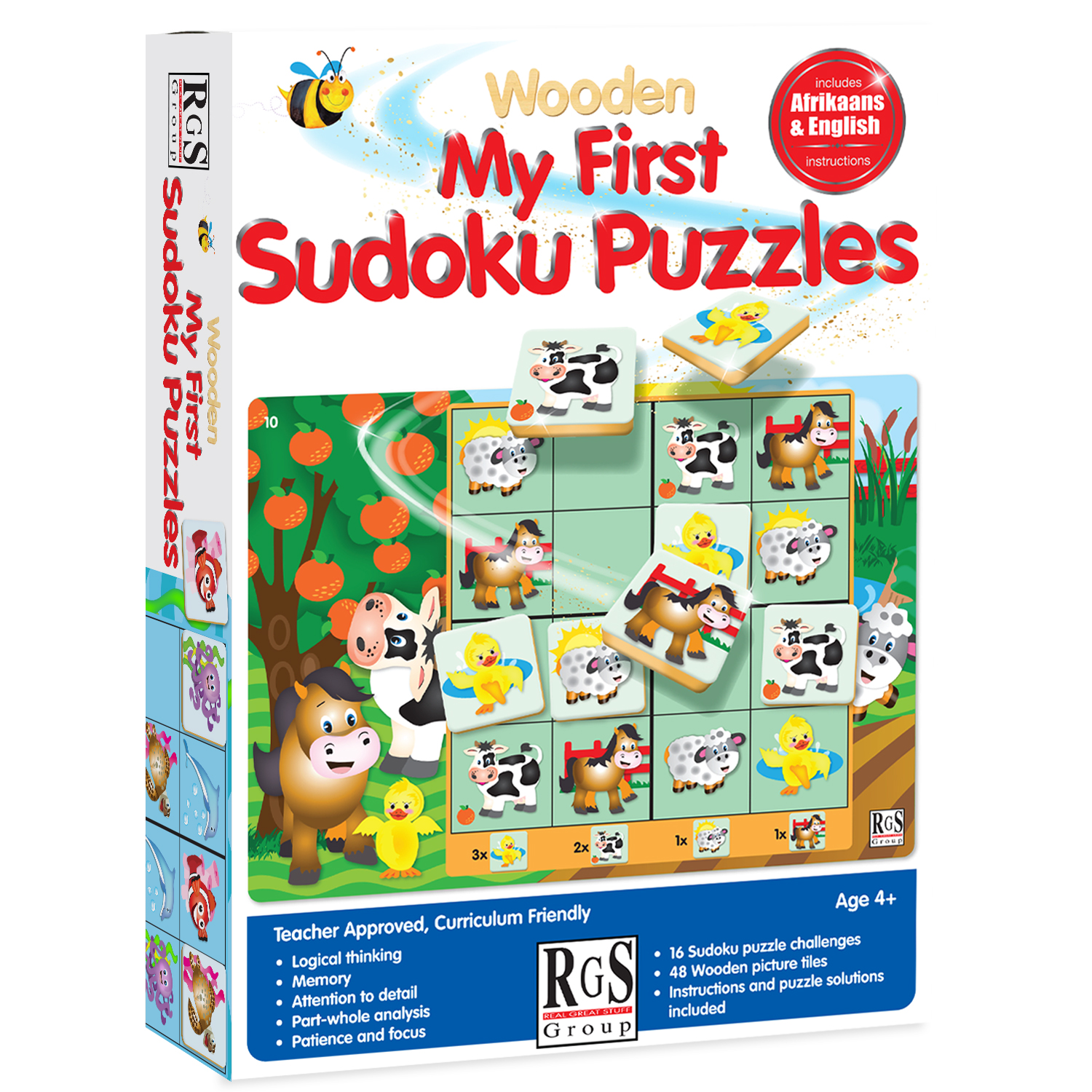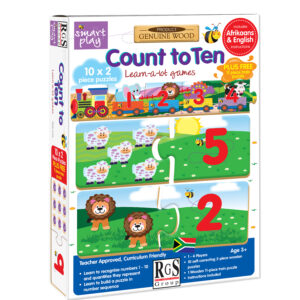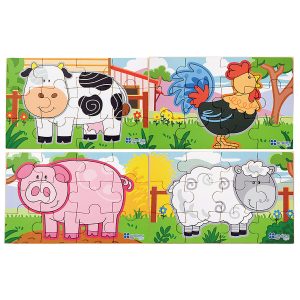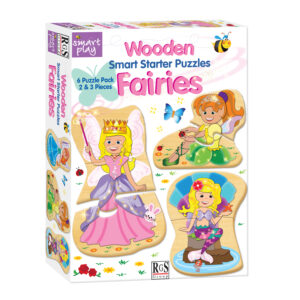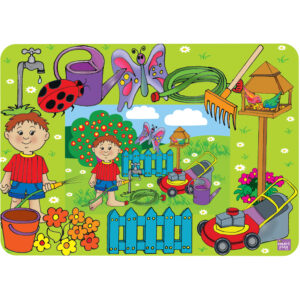Description
Sudoku is a quick-thinking puzzle game that stimulates the brain by teaching critical thinking, logic, memory, flexibility, attention to detail and concentration. Think of it as a brain gym for your child!
RGS My First Sudoku Puzzle cards consist of a 4×4 grid and use pictures to create and solve puzzles.
The set contains wooden picture tiles and laminated challenge cards to complete engaging logic puzzles. Solutions are provided in the instructions leaflet supplied.
Additional games such as Memory, Classifications and Snap! can also be played for added benefit and fun!
Suitable from 4+
In the box
• 16 Challenges
• 48 Wooden picture tiles
• Instructions and puzzle solutions
1. Teaches to think outside the box using logic and reason to solve puzzles
There is no “one-way” or “right way” to solve a sudoku puzzle. Students will find many different ways to reason and solve these puzzles that may be outside the box of their thinking! Having a “math talk” and solving a puzzle as a group allows other students to show their reasoning and thinking behind different moves they may make. Every student thinks differently and solves differently (much like a jigsaw puzzle can be solved a million different ways so can a sudoku puzzle) so math talks provide valuable insight into each other’s thinking.
2. Increases rationalizing skills
Students are tasked with solving a puzzle and thinking rationally about every move and decision they make. Will this work? Will this fit? Why or why not? If I put this piece here, how will it affect these other pieces?
3. Learn to think critically, make decisions and solve problems
When you place pieces in a sudoku puzzle, students can critically analyze why this piece of the puzzle will or will not work in a certain square. It helps them make decisions and solve problems while looking at future moves and determining if the piece they are placing in a square now will affect the outcome later.
4. Look for and recognize patterns
Like most puzzles, patterns CAN play a role. In some cases when you look at a sudoku puzzle you can see a pattern.
5. Pay attention to details
Students are tasked with paying attention to every detail because if you place a piece early in the game that is incorrect the puzzle will not be able to be solved in the end without a mistake or a double number/picture in a row, column or square.
6. Increase math vocabulary
While sudoku is NOT a math game it does boost math vocabulary. Listen to your students as they talk through solving their puzzles. You will be amazed at the vocabulary they use!
7. Improve memory skills
Sudoku requires you constantly memorize pieces in the puzzle. You are memorizing what you have down and what you need to complete a row, column or square.
8. Exercise the brain
These puzzles are a brain workout! You are constantly focussing, calculating, concentrating and exercising your brain!
9. Build focus, concentration, and patience
Solving a sudoku puzzle can be a daunting task for kids! They will have to concentrate, focus, and practice patience to solve these! This activity requires many parts of the brain to focus/concentrate while using logic and reasoning to determine their next move! Patience will be key. Learn through mistakes – grow your brain! Trial and error is a great way to become better, persevere and become more proficient!
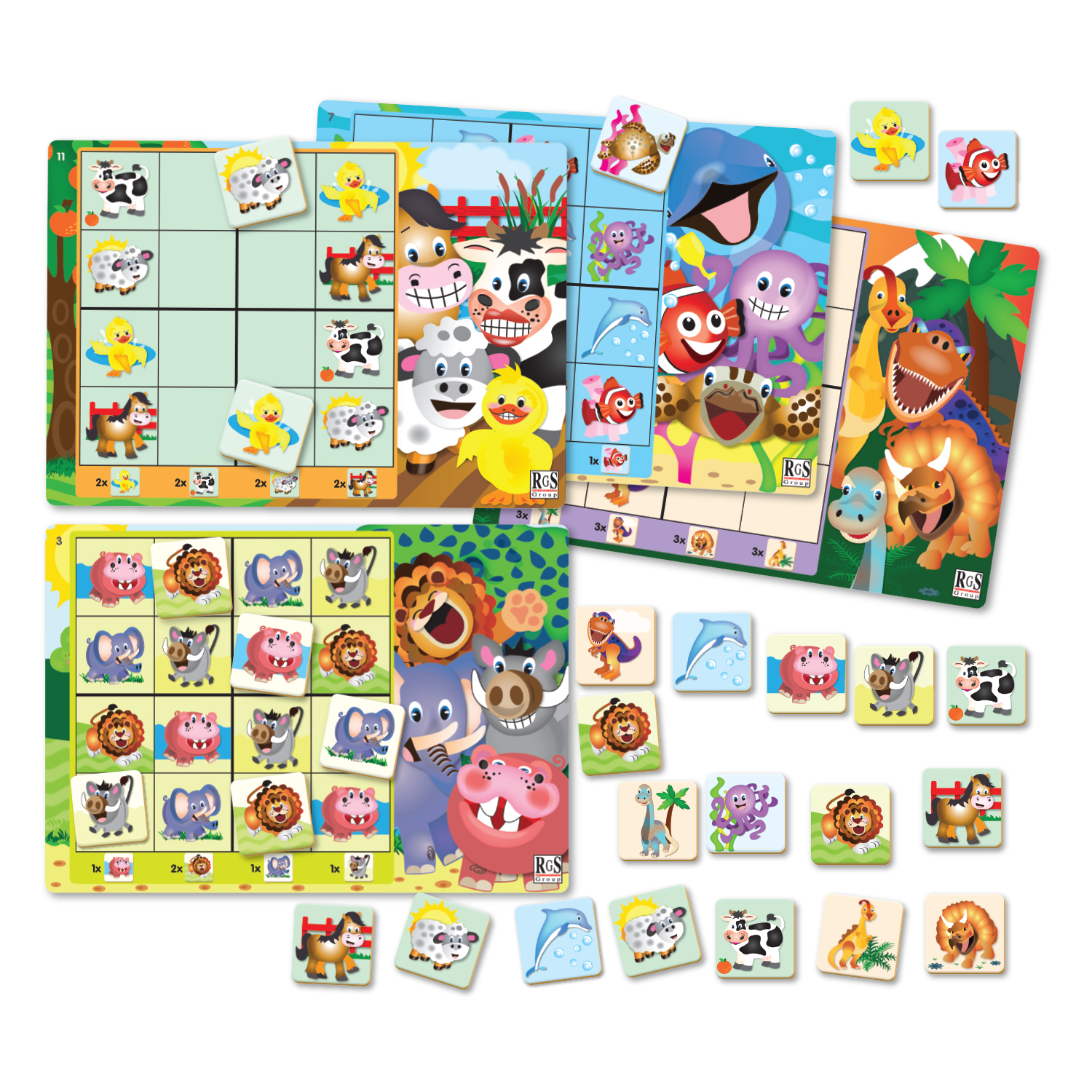
ALL PRODUCTS ARE ORDERED FROM THE SUPPLIER ON ORDER CONFIRMATION.
ESTIMATE DISPATCH 7 to 20 BUSINESS DAYS.

